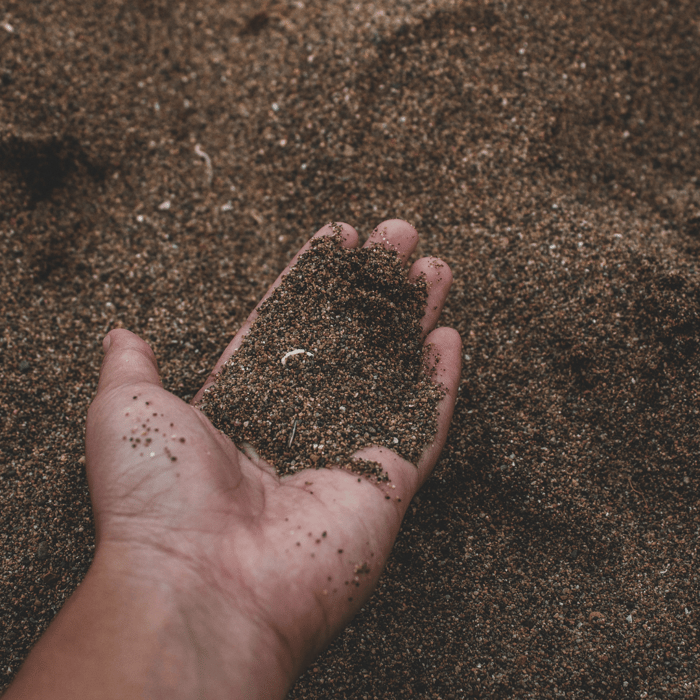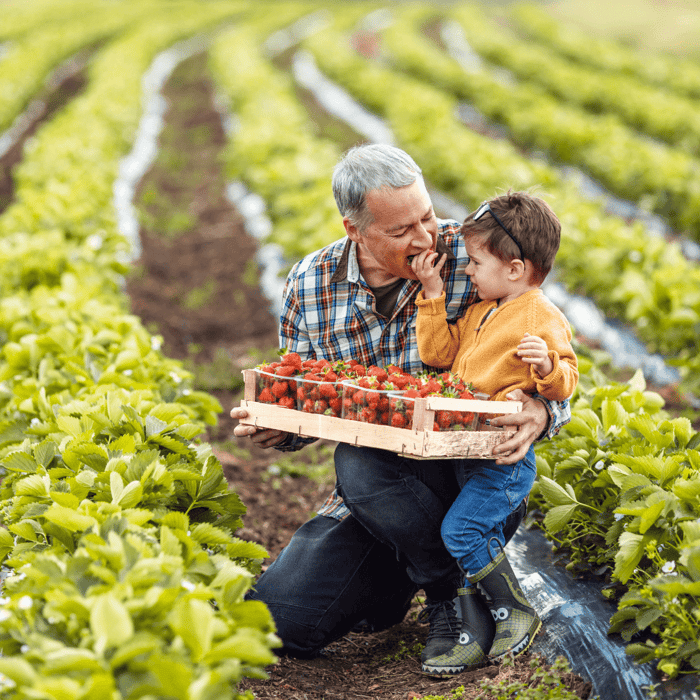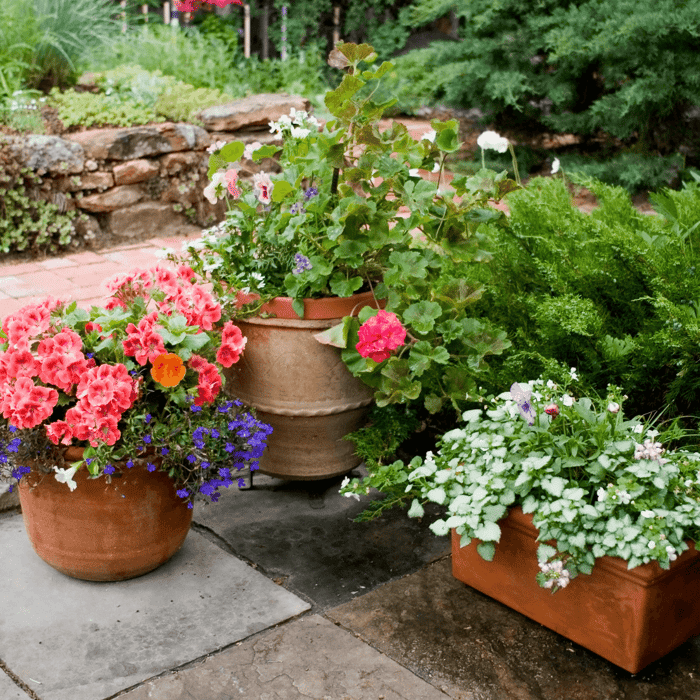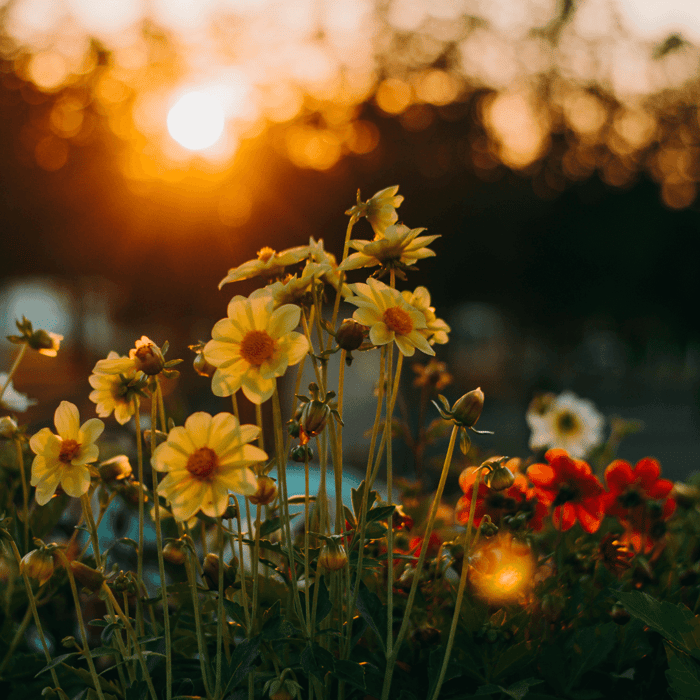Hello fellow gardeners! As an avid gardener, I know how important it is to choose the suitable soil for container gardening. The soil you use can make all the difference in the success of your plants, whether you're growing a lush vegetable garden, a fragrant herb garden, or a beautiful flower garden. In this in-depth guide, I'll share the best soil options for container gardening, including a step-by-step guide to help you create the perfect potting soil blend. So let's start and figure out what is the best soil for container gardening!
Table of Contents
- Understanding the Importance of Soil in Container Gardening
- What to Look for in Container Gardening Soil
- The Best Soil Mixes for Container Gardening
- Creating Your Own Custom Potting Mix
- Retaining Moisture in Container Gardening
- Adding Worm Castings for Soil Health
- Avoiding Weed Seeds and Pests
- Caring for Your Container Garden
1. Understanding the Importance of Soil in Container Gardening
Before we dive into the best soils for container gardening, it's crucial to understand why the soil is so important. When growing plants in containers, your plants' roots are confined to a smaller space than in a garden bed or raised bed. This means that the soil in your container needs to be light and fluffy, allowing for proper drainage and aeration and providing essential nutrients for your plants to thrive.
Vegetable Seed Vault Kit | 35 Variety Pack

$29.95
$49.95
Ultimate Survival Seed Vault: 16,000+ Non-GMO Heirloom Vegetable Seeds for Emergency Preparedness Introducing the Seed Vault Kit, your all-in-one solution for emergency preparedness and sustainable gardening. This premium seed kit contains over 16,000 non-GMO, Heirloom, Non-Hybrid, and Open Pollinated seeds,… read more
2. What to Look for in Container Gardening Soil
When choosing soil for your container garden, there are a few key factors to consider:
- Drainage: The soil should allow excess water to drain quickly, preventing root rot.
- Aeration: It should be light and fluffy, allowing air to circulate around the roots.
- Nutrients: The soil should be rich in organic materials, providing essential nutrients for plant growth.
- Moisture retention: It should have the ability to retain moisture without becoming waterlogged.
3. The Best Soil Mixes for Container Gardening
There are several soil mixes available on the market that are specifically designed for container gardening. Here are some of the best options:
-
All-purpose potting soil: This is a versatile option that can be used for various plants. It typically contains peat moss, vermiculite, and perlite, providing a well-balanced mix of drainage, aeration, and nutrients.
-
Potting mix for vegetable gardens: These mixes are formulated with added nutrients, such as compost or aged manure, to support the growth of vegetable plants. They also typically include organic materials like peat moss and coconut coir for moisture retention.
-
Herb garden soil mix: Herb garden mixes usually contain more sand or perlite, ensuring excellent drainage for herbs that prefer drier conditions. They also often have organic matter, such as compost or aged manure, to provide nutrients.
-
Flower garden soil mix: These mixes are designed with flowers in mind, often containing a blend of peat moss, perlite, and vermiculite, as well as added nutrients like compost or aged manure.
4. Creating Your Own Custom Potting Mix
While pre-made mixes are convenient, you can create custom potting mixes for your specific container gardening needs. Here is a step-by-step guide for creating your own blend:
-
Start with a base: Peat moss or coconut coir is a good base for your mix. These materials are light and fluffy, providing excellent aeration and moisture retention. Start with a ratio of about 60% peat moss or coconut coir.
-
Add drainage materials: Incorporate perlite, vermiculite, or sand to improve drainage. Use about 20% of your mix for these materials. Remember that perlite and vermiculite are better for moisture retention, while sand is ideal for drier-loving plants like herbs.
-
Incorporate organic matter: Compost, aged manure, or worm castings provide essential nutrients for your plants. Use 10-20% of your mix for these organic materials, depending on your plants' nutrient needs.
-
Customize your mix: Depending on your specific plants, you may want to add other ingredients, such as a bone meal for phosphorus, a blood meal for nitrogen, or lime to adjust the pH.
-
Mix thoroughly: Combine all ingredients in a large container or wheelbarrow, ensuring a uniform blend.
5. Retaining Moisture in Container Gardening
Retaining moisture is vital for the success of your container garden, as containers can dry out quickly, especially in hot weather. To help your soil retain moisture, consider the following tips:
- Use moisture-retaining materials: Peat moss and coconut coir are excellent at holding moisture, which can help prevent your containers from drying out too quickly.
- Add mulch: A layer of organic mulch on top of your soil can help slow evaporation and cool the soil.
- Choose self-watering containers: These containers have built-in reservoirs to hold water, ensuring your plants receive a consistent moisture supply.
- Monitor water levels: Check your containers regularly and water as needed to maintain consistent moisture levels.
Popular Herb Seeds for Planting | 35 Variety Pack

$29.95
$49.95
Heirloom, non-GMO herb seeds for indoor and outdoor home gardens! Introducing our 35 Herb Seeds Variety Pack, the ultimate selection for any herb garden enthusiast! This premium assortment includes heirloom herb seeds that are non-hybrid, open-pollinated, and non-GMO, ensuring you get only… read more
6. Adding Worm Castings for Soil Health
Worm castings are an excellent addition to your container gardening soil mix, providing a rich source of nutrients and beneficial microorganisms. They can improve soil structure, promote healthy root growth, and help plants resist diseases and pests. To incorporate worm castings into your potting mix, use 10-20% of your mix, depending on your plants' nutrient needs.
7. Avoiding Weed Seeds and Pests
One of the advantages of container gardening is the ability to control the soil quality and minimize the presence of weed seeds and pests. To prevent weed seeds from contaminating your containers, use a sterile, high-quality potting mix, and avoid using garden soil. Additionally, consider planting heirloom seeds, which are less likely to carry weeds or pests.
To prevent pests from infesting your containers, ensure proper drainage, and avoid overwatering, as soggy soil can attract harmful insects and diseases.
 8. Caring for Your Container Garden
8. Caring for Your Container Garden
Proper care and maintenance are essential for the success of your container garden. Follow these tips to ensure healthy, thriving plants:
- Watering: Monitor your containers regularly and water as needed, ensuring consistent moisture levels without overwatering.
- Fertilizing: Container plants may require more frequent fertilization than in-ground plants, as nutrients can be washed away with watering. Use a slow-release or liquid fertilizer according to the package instructions, and adjust as needed based on your plants' growth and appearance.
- Pruning: Regularly prune your plants to encourage healthy growth and remove dead or diseased foliage. This can also help improve air circulation and prevent the spread of diseases.
- Rotation: Rotate your containers every few weeks to ensure that all sides of your plants receive adequate sunlight, promoting even growth.
- Pest control: Regularly inspect your plants for signs of pests or diseases, and take action promptly if you notice any issues. Use organic pest control methods, such as introducing beneficial insects, insecticidal soap, or neem oil.
- Repotting: As your plants grow, they may outgrow their containers. Be prepared to repot your plants into larger containers when necessary, using fresh potting mix to ensure continued growth and health.
By following this in-depth guide and considering the unique needs of your plants, you can create the perfect soil mix for your container garden. From retaining moisture and adding worm castings to avoiding weed seeds and pests, every aspect of your soil mix plays a role in the success of your garden. With proper care and maintenance, your container garden will thrive, providing you with a beautiful and bountiful harvest.







